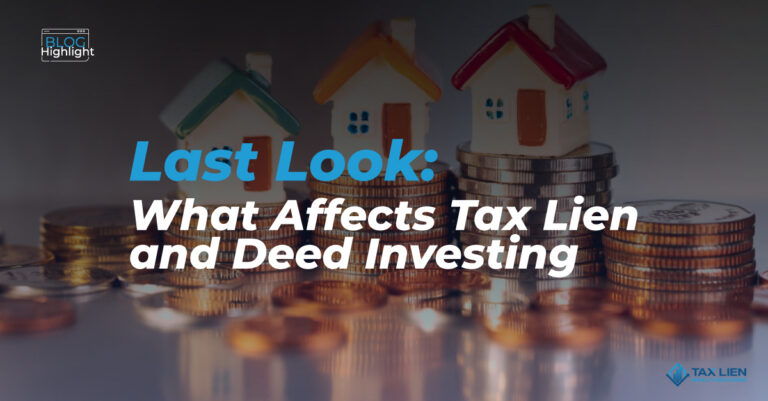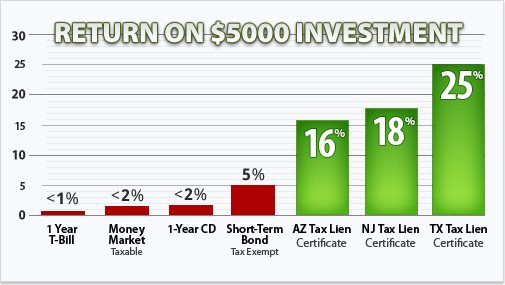All Categories
Featured
Table of Contents
Tax lien investing can provide your portfolio exposure to property all without having to really have property. Professionals, however, claim the process is made complex and warn that beginner capitalists can quickly get burned. Right here's everything you require to find out about buying a tax obligation lien certificate, consisting of just how it functions and the threats involved.
The notification normally comes prior to harsher activities, such as a tax obligation levy, where the Irs (INTERNAL REVENUE SERVICE) or neighborhood or local federal governments can in fact take somebody's building to recuperate the financial obligation. A tax obligation lien certificate is created when a home owner has actually failed to pay their tax obligations and the neighborhood federal government concerns a tax obligation lien.
Tax lien certifications are usually auctioned off to financiers aiming to revenue. To recoup the delinquent tax obligation bucks, districts can after that offer the tax lien certification to exclusive capitalists, that look after the tax bill in exchange for the right to gather that cash, plus rate of interest, from the building proprietors when they at some point repay their balance.
What Is Tax Lien Certificate Investing
enable the transfer or task of overdue property tax liens to the exclusive sector, according to the National Tax Obligation Lien Organization, a nonprofit that stands for governments, institutional tax obligation lien investors and servicers. Right here's what the procedure appears like. Tax obligation lien investors have to bid for the certificate in a public auction, and exactly how that procedure works depends upon the details district.
Get in touch with tax obligation authorities in your location to inquire exactly how those delinquent taxes are gathered. Auctions can be on the internet or face to face. Sometimes winning quotes most likely to the investor ready to pay the most affordable rates of interest, in a method understood as "bidding down the rates of interest." The municipality establishes a maximum price, and the prospective buyer offering the most affordable rate of interest rate under that optimum wins the public auction.
Various other winning bids go to those that pay the highest possible money amount, or premium, above the lien quantity. What happens next for investors isn't something that takes place on a supply exchange. The winning bidder needs to pay the entire tax obligation bill, consisting of the delinquent financial obligation, rate of interest and fines. The capitalist has to wait till the residential or commercial property owners pay back their entire equilibrium unless they do not.
While some financiers can be rewarded, others may be caught in the crossfire of complex policies and technicalities, which in the worst of situations can lead to large losses. From a simple profit perspective, the majority of capitalists make their cash based upon the tax obligation lien's passion rate. Rate of interest vary and depend on the jurisdiction or the state.
Earnings, however, do not constantly total up to yields that high during the bidding procedure. Ultimately, most tax obligation liens acquired at auction are sold at rates in between 3 percent and 7 percent nationally, according to Brad Westover, executive director of the National Tax Obligation Lien Association. Prior to retiring, Richard Rampell, formerly the chief exec of Rampell & Rampell, an accounting firm in Hand Coastline, Florida, experienced this direct.
Tax Ease Lien Investments
Then huge institutional capitalists, including banks, hedge funds and pension funds, chased after those greater yields in public auctions around the country. The larger capitalists helped bid down interest prices, so Rampell's team had not been making considerable cash any longer on liens.
Yet that seldom occurs: The taxes are normally paid before the redemption date. Liens additionally are initial in line for payment, even before home mortgages. Even so, tax liens have an expiry day, and a lienholder's right to seize on the building or to accumulate their investment runs out at the same time as the lien.
"Often it's six months after the redemption period," Musa says. "Do not think you can simply acquire and forget it." Specific investors who are considering financial investments in tax obligation liens should, over all, do their research. Experts suggest preventing residential or commercial properties with environmental damages, such as one where a filling station unloaded harmful material.
How To Invest In Tax Lien
"You must truly recognize what you're purchasing," claims Richard Zimmerman, a companion at Berdon LLP, a bookkeeping company in New york city City. "Understand what the property is, the neighborhood and values, so you do not buy a lien that you will not be able to accumulate." Would-be investors should additionally inspect out the residential property and all liens versus it, along with recent tax obligation sales and price of similar residential properties.
Yet, maintain in mind that the info you discover can frequently be dated. "Individuals obtain a list of buildings and do their due diligence weeks before a sale," Musa states. "Fifty percent the residential properties on the checklist may be gone since the tax obligations earn money. You're squandering your time. The closer to the date you do your due diligence, the far better.
Invest In Tax Liens

Westover says 80 percent of tax lien certifications are sold to participants of the NTLA, and the agency can frequently match up NTLA participants with the appropriate institutional investors. That may make managing the process less complicated, particularly for a novice. While tax lien investments can supply a charitable return, understand the small print, details and rules.
"Yet it's made complex. You have to comprehend the information." Bankrate's added to an upgrade of this story.
Home tax liens are a financial investment niche that is ignored by the majority of capitalists. Buying tax liens can be a lucrative though fairly danger for those that are educated about property. When individuals or services fail to pay their real estate tax, the districts or various other government bodies that are owed those tax obligations position liens against the buildings.
Tax Lien Invest
These insurance claims on security are likewise traded among financiers who wish to produce above-average returns. Via this procedure, the district gets its taxes and the investor gets the right to gather the quantity due plus rate of interest from the borrower. The process rarely ends with the investor confiscating possession of the residential or commercial property.
Liens are sold at auctions that often entail bidding battles. If you need to seize, there might be other liens against the residential or commercial property that keep you from occupying. If you obtain the property, there may be unexpected costs such as fixings and even kicking out the existing residents. You can additionally invest indirectly by means of property lien funds.
It successfully ties up the property and prevents its sale until the proprietor pays the tax obligations owed or the building is confiscated by the financial institution. When a landowner or homeowner fails to pay the tax obligations on their building, the city or county in which the building is located has the authority to position a lien on the home.
Residential property with a lien attached to it can not be offered or refinanced until the taxes are paid and the lien is gotten rid of. When a lien is provided, a tax obligation lien certification is produced by the town that reflects the amount owed on the residential or commercial property plus any kind of rate of interest or penalties due.

It's estimated that an added $328 billion of real estate tax was evaluated across the united state in 2021. The fad continues. Taxes on single-family homes were approximated to increase an average of 3.6% in 2022, to a total amount of $339.8 billion, and by 6.9% in 2023, to $363.3 billion. It's hard to evaluate across the country residential property tax obligation lien numbers.
Latest Posts
Tax Forfeited Property
Back Tax Property For Sale Near Me
Government Taxes Foreclosures